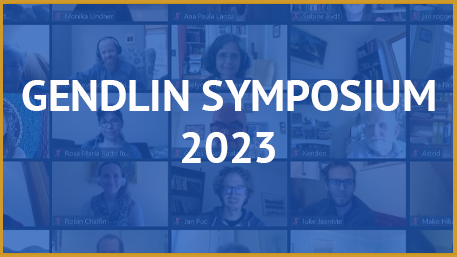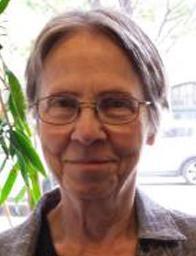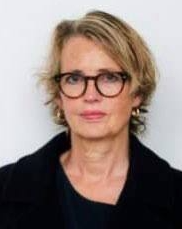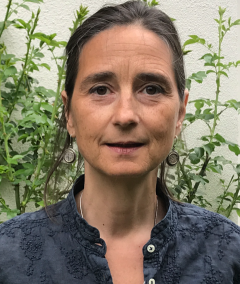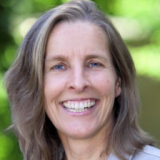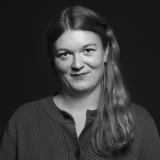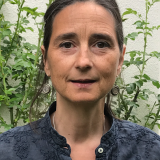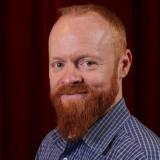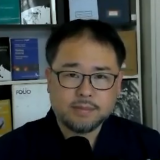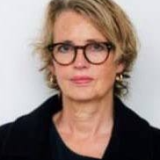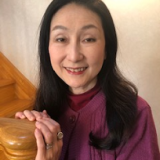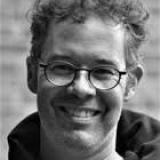Your Hosts
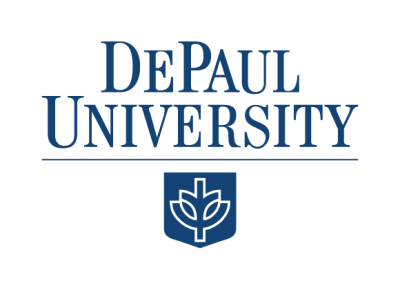

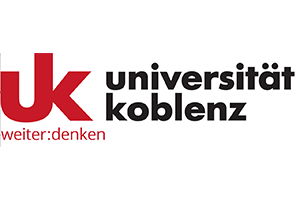

Where & When
After registering you will receive an email confirming your registration. Please check junk/spam/promotions if you do not find the email.
Gendlin Symposium
“Deliberative Transformation:
Embodied Phenomenology and Process Thinking”
Online
September 28 – October 1, 2023
(September 29 – October 2, 2023 if you are in Asia / Oceania)
REGISTRATION FOR THE RECORDINGS WILL REMAIN OPEN THROUGH FEB 1, 2024
The Symposium will be presented live and also recorded. The recordings will be available through December 15, 2023 February 15, 2024
Many of our political and social patterns make mutual understanding disturbingly difficult. Rigid categories and identities cramp and undercut the personal, collective, and systemic transformation that global, environmental and social challenges call for. In this kind of stuckness the relevance of Gendlin´s process thinking and experiential approach deserves careful consideration.
Gendlin’s philosophy combines conceptual innovation on a foundational level, and new possibilities of self-transformation on the practice level. Both go hand in hand. We are only at the beginning of spelling out the profound potential of this unique approach for today’s urgent problems. We are also only at the beginning of spelling out the relevance of his work for philosophical and psychological discourse, for approaches in the cognitive sciences, as well as for philosophical, psycho-therapeutic and research practices.
Gendlin's methodological and conceptual precision is a strong contribution in overcoming one of the major philosophical problems: dualistic, disembodied and non-responsive thinking-patterns that split between mind and body, humans and non-humans, body and environment, me and others, feeling and rationality etc. Understanding human living in constant interaction with environment is the basis for Gendlin’s re-evaluation of experiencing, and for his focus on the creation of fresh meaning.
Gendlin‘s work evokes new personal, social and ecological ways of thinking and being. By letting felt sensing explicate the experiencing body's implicit understandings, one learns to think both with and beyond patterns/structures. This opens new paths for liberatory, cross-cultural, and interdisciplinary understandings, encouraging sensitive and deliberative transformation.
The Planning Committee
|
|
|
|
Mary Jeanne Larrabee - Dr. Larrabee completed graduate degrees in philosophy at Indiana University, Bloomington, and The University of Toronto. She recently completed an M.A. in theology/spirituality at the Catholic Theological Union Chicago, as well as an eight-month internship on Spiritual Direction with the Loyola Jesuits. She served as Director of DePaul's Women's Studies Program in the mid-eighties and was Director of DePaul's Peace, Justice & Conflict Studies B. A. Program, established in January 2010 with the collaboration of its faculty. She edited An Ethic of Care, has published articles in phenomenology, Husserl studies, feminism, Asian philosophy, trauma studies, and gender and critical race and mixed race studies. She is currently researching theories of the self within multiply cultural contexts, comparative spiritual practices, and theologies of trauma, resistance, and healing.. Read full bio
Sigridur Thorgeirsdottir - Sigridur is a professor of philosophy at the Department of Philosophy at the University of Iceland. Prior to her return to Iceland she taught at the University of Rostock, and was Erkko Professor at the University of Helsinki in 2014-2015. She studied philosophy in Boston and Berlin, and did her doctorate on the philosophy of Nietzsche. She continues to do Nietzsche-research, but has also done work in feminist and environmental philosophy. She is interested in the intersection of philosophy of embodied life and phenomenology, and has been working on the relation between Nietzsche ́s philosophy and the philosophies of Arendt, Beauvoir, Irigaray, Butler and more recently of Eugene Gendlin. Read full bio
Donata Schoeller - Donata is a philosopher who teaches at the Universities of Koblenz and Iceland. She wrote her PhD on Meister Eckhart. Her Habilitation (a second PhD necessary for the tenure track in the German speaking world) is based on and inspired by many years of research of Gendlin’s philosophy. She is the academic director of the interdisciplinary program "Training in Embodied Critical Thinking," in which five universities participate. The program is funded by the European Erasmus + Funds for Strategic Partnership in Higher Education. Donata Schoeller has published extensively on Gendlin’s philosophy. With Christiane Geiser, she has also translated A Process Model into German. In close collaboration with Eugene Gendlin and Neil Dunaetz, she has written a first introduction to this oeuvre. She is a Focusing Coordinator, giving year-long trainings in Switzerland. As a TAE-teacher she is invited internationally to teach at a variety of universities and academies. She has three daughters and lives in Switzerland and Germany. For more information, see donataschoeller.com
The Schedule
Presenters
Dorothe Bach and Katrin Heimann - Expanding our “Relational Imagination” Through Radical Listening
In ”Meeting the Predator” ecofeminist Val Plumwood describes her near death encounter with a crocodile and how the presumably last moments of her life were dominated by thoughts and feelings that revealed a deeply embodied speciesism. Increasingly, scholars are joining her call to unlearn this patterning and retrain themselves in a different way of relating to human and non-human others. In this presentation, we argue that Micro-Phenomenology, Focusing and Thinking at the Edge can contribute to this endeavour and we share exercises for training a relational imagination that challenges colonization and promotes solidarity. Read bios
Vera Borrmann - Designing an Embodiment-focused Phenomenological Interview Method:Integrating Focusing and Gendlin's Considerations on Relationality
Phenomenological interview methods (PIMs) are frequently employed in interdisciplinary research areas such as psychiatry, psychology and care these days. This paper highlights the significance of considering the embodied, extended, and enactive aspects of human existence when employing PIMs, particularly in fields such medicine and care, where the felt experiences of the patient and the therapeutic relationship play a central role. ....read more and bio
Heinke Deloch - Creating a Space for Experiential Thinking at University
Gendlin has argued that it is not logical but experiential thinking that creates new ideas and meanings. And he has advocated practicing experiential thinking at university alongside logical-analytic thinking. With Thinking at the Edge he has developed thinking movements that make experiential thinking teachable and learnable. However in some ways, experiential thinking seems .... read more and bio
Neil Dunaetz - Living in the About: Gendlin’s Fight Against the Artificialized Real
Gendlin pushes back against a world increasingly known via abstraction and artifice, caught up in narrative, divorced from land, and surrounded by built. His radical philosophic germ move “interaction first” is, in terms of order of progression, the opposite of “interaction.” The latter, though taken as real, is already artificialized: the artificialized real. With Gendlin ....read more and bio
Evelyn Fendler-Lee - Understanding Understanding
The first sentence of the symposium announcement addresses the challenge of understanding: “Many of our political and social patterns make mutual understanding disturbingly difficult.”
The presentation will explore how we may overcome this difficulty, and whether Gendlin's philosophy can help us improve our understanding of each other. ....read more and bio
Bill Gayner - Orienting Emotion-Focused Mindfulness to Gendlin’s Philosophy of the Implicit
Gendlin’s philosophy of the implicit lies at the heart of the modality I am developing, Emotion-Focused Mindfulness Therapy (Gayner, 2019, 2022a), and its associated mindfulness community practice, Touching the Earth (Gayner, 2020a and b, 2022b). EFMT integrates Mindfulness-Based Interventions and experientially friendly Secular Dharma (Buddhist) practice perspectives into Emotion-Focused Therapy (EFT). ....read more and bio
Akira Ikemi - Crossing with Animals: How New Forms of Focusing can be Developed from Gendlin’s philosophy and psychotherapy theory
‘Crossing with Animals’ is a psychological exercise that I have developed. It is done in pairs where each person takes turns to explore how to express their sense of life as an animal. How one lives, or existence, is pre-conceptual; it is a direct referent that is not yet formulated in words or concepts. Using the metaphor of animal ....read more and bio
Luke Jaaniste - A Tender Beginning with Tenacious Branches: Gendlin’s Starting Point, and Its Multiple Elaborations
It would be helpful in our understanding of a philosopher, would it not?, if their entire work had within it a singular “genetic code” (to use Gendlin’s phrase from his text on Two Ways of Reading Philosophy). Especially convenient if, like Gendlin, they wrote over 100 deeply considered essays and half-a-dozen books across ....read more and bio
Guðbjörg R. Jóhannesdóttir - The Felt Sense, Aesthetic Perception and Sensuous Knowledge
In this paper I will discuss how Gendlin’s philosophy of the implicit can shed light on what we mean when we talk about aesthetic perception and the sensuous knowledge gained through aesthetic experiences of art and environment. Through this discussion I will highlight how Gendlin’s understanding of the human being as organism-person-environment process helps us see the common root of the different types of knowledges that are created within the arts and the sciences. Seeing this common ....read more and bio
Yasushi Kuba - Symbolizing Process as a Dynamic Boundary Between the Subject and the Object: Critical Consideration on Gendlin’s Theory of Functional Relationships
The aim of this paper is to reformulate Gendlin’s theory of functional relationships between symbols and felt meaning presented in Experiencing and the Creation of Meaning, and to provide a viewpoint to see the theory as dynamic boundary between the subject and objects. Felt meaning functions in two different ways; as a background without being adverted, and as something to pay deliberate attention to. ....read more and bio
Tomke König - Experiential Gender Research. The Body as a Source of Meaning and Change
In her talk, Tomke König shows how "First-Person-Science" can contribute to the further development of gender research and gender theory. She introduces the "Experiential Gender Research" approach, which focuses on the body and pursues the following empirical research questions: What does ....read more and bio
Mary Jeanne Larrabee - Listening to Silence within the Experiential Pause: From the Static “Ear” to the “Dynamic” Ear of Community, Transformation, and Deep Healing
I initiate a phenomenology of listening, but with an emphasis on listening to silence.
I first investigate briefly some everyday listenings to silence and then propose less "ordinary" listenings, some of which are employed in the practice of Experiential Focusing. I frame my approach, first, by noting Edmund Husserl's radical phenomenological method of reduction taken as a "pulling back" from un-criticalized assumptions about the how and what of that given in experiencing. ....read more and bio
Rob Parker - Gendlin's Copernican Revolution
Gendlin wrote in Experiencing and the Creation of Meaning, that "philosophy requires another
Copernican revolution." He meant that we need to realize that meaning originates not in
language and concepts but in felt experiencing (ECM p.9). We will discuss 1) how the creation
of meaning is at the core of Gendlin's philosophy, first in his IFI principle in ECM, and later in
his concepts of body-environment interaction, implying, and carrying forward; and 2) why this
insight is desperately needed in our world of relativism, where all meanings can be disputed, and
science teaches us that the universe is meaningless. ....read more and bio
Riley Paterson - Gendlin and the Crises of Modernity as a Crisis in Bodily Time: A Process Model as a Text of Cultural Renewal
This paper claims that Gendlin’s work should be understood in relation to the political and philosophical crises of the nineteenth and twentieth centuries. These crises emerged from the intertwined processes of the decline of religion, intensified industrialization, and theintertwining of science, technology, and political violence. The result has been escalating violence and war, growing social alienation, and widespread despair about the meaning of life. ....read more and bio
Donata Schoeller - The Political Implications of the Direct Referent
First, I will draw on perspectives of phenomenology, pragmatism and embodied cognition to sharpen the awareness of the crux of language when it comes to describing and explicating experience. This will help me to get a grip on what Gendlin calls „direct reference,“ in ways that uncover its political implications. In a time when ChatGPT (can choose among ways how things are properly said on the basis of millions of data sets, following the already formulated language systems and re-arranging words, the process Gendlin calls „direct reference“ has the potential to resist being carried away by imposed language, images and habituated implications. ....read more and bio
Eric Severson - The Implicity of Racism: Fighting Oppression with Tools from Eugene Gendlin
Among the best tools left to us by Eugene Gendlin is a method for a never-ending revisitation of the way we think about our lives, our bodies, and our environment. The world toward which this method turns us is always evolving, different in every moment. In his presentation, Severson turns Gendlin’s methodology toward the intricate structures of systemic ....read more and bio
Michaela Stumberger - Experiencing a Common Ground as Embodied Production and Selection
In Experiencing and the Creation of Meaning Gendlin writes: „There are no units. Anything like a unit experience is always a product, embodying its experienced production and selection.“ (Gendlin 1962: 153) From a communication studies perspective, I want to explore how we can understand this kind of production and selection in a social sense. To do so, I will draw on the concept of "common ground." It refers to ....read more and bio
Hideo Tanaka - Gendlin's Philosophical Background and the Development of His Thoughts
This presentation will review Gendlin's theoretical development and examine his philosophical background in his writings of each period. First, it will show how he was initially influenced by Dilthey's philosophy in the early 1950s, when logical positivism was flourishing, and how he drew on the framework of American classical ....read more and bio
Sigridur Thorgeirsdottir - Focusing Bottlenecks - (description coming)
Satoko Tokumaru - Internal Structure of Concepts in "A Process Model"
In "A Process Model,", Gendlin discusses the process of generating meaning, which develops from physical processes to behavior, language, and direct referent, in relation to plants, animals, and humans. Although it appears to be an evolutionary theory, Gendlin emphasizes that he ....read more and bio
Siebrecht Vanhooren - Beyond Ourselves: Tomorrow’s Tremendous Leap of Faith
In the footsteps of Otto Rank (1936) and Carl Rogers (1961), Eugene Gendlin (1962, 1970) elaborated and cultivated a radical stance of not-knowing beyond the borders of what we often call ourselves, emotion, and cognition. Together with Rank and Rogers, Gendlin discovers that not only this not-knowing stance, but actually ....read more and bio
Greg Walkerden - Grounding Practice Research in the Philosophy of the Implicit: Methods, Experiments and Innovations
The center of the Philosophy of the Implicit (PoI) is understanding felt sensing, and felt sensing plays a pivotal role in a great deal of skillful practice, so the PoI has much to contribute to practice research. Some illustrative edges are: (i) professional practice can be ....read more and bio
MacPherson Worobec - Precisely responsive: En #2 and en#3 as embodied phenomenological spaces for deliberative healing after psychological trauma
Sometimes what will make a situation better is not clearly known. What has worked in the past might not work again, what worked for one person might not work for another, or the situation is so complex that it is unclear where to begin repair. In the case of complex or relational psychological trauma, predetermined solutions and treatment protocols may not be effective since they are not precisely responsive to the client’s unique healing needs. ....read more and bio
-------
The following videos featuring four of our Symposium presenters are part of a video project voicing Gendlin's relevance
|
|
|
|
|
Registration Information and Price
Presenters are volunteering to offer this event to support The International Focusing Institute.
We use Zoom videoconferencing for our online classes. The sessions will be held in meeting format so that all participants can see the presenters and each other. You will need to have a computer/mobile device. Calling in by phone is also possible but not preferred as participation will be limited. Breakout rooms (if utilized) are not recorded.
Registration Policies
Refunds: A full refund minus a $25 administrative fee for cancellations 14 days before the start date. Cancellations less than 14 days before the start date are nonrefundable. The International Focusing Institute reserves the right to cancel or re-schedule for insufficient enrollment or for other unanticipated reasons. In such cases you will be given a choice of applying your tuition to future programs, or having the full enrollment fee returned to you.
TIFI reserves the right to cancel, change and alter the program if necessary. Participants authorize TIFI to use their name, statements and likeness without charge, for promotional purposes in publications, advertising, video, web, new media, or other formats.
By registering for this course with the Institute, and in consideration of the right and opportunity to participate in and contribute to the Institute’s classes, for the purposes of its control of all video and/or audio recordings thereof pertaining to uses serving our purposes and goals, in enrolling in this session you acknowledge and agree to the Institute’s ownership of all rights in such classes, including all rights under copyright therein. If you plan to use, post or display any portion or clips of these recordings, including posting these to a website or to a social media platform or portal, you agree that you will seek and obtain the prior approval of the Institute. In no circumstance shall any portion or clip posted or displayed exceed 3 minutes in duration.
At many of our events, we will end class by taking a screenshot. All those who don't want to be included will have the chance to leave. Taking screenshots for sharing (such as on social media) are not allowed at other times during the class. Thanks for your cooperation.
Regular Price $200 Modified Price $120 *Lowest Price $75
Three tier pricing. We welcome you to select the level right for you, while reminding you that if you have a reliable means of support and live in a country with a strong economy, we ask that you pay the regular price. By choosing the highest amount you are capable of paying you help make the sliding scale possible. Thank you!
*Note: if the lowest price is not affordable for you please write to [email protected] to inquire about a scholarship.
University Faculty and Students If you are a faculty member or student at one of our sponsoring universities: DePaul University, Kansai University, University of Iceland or University of Koblenz, please write to [email protected] for special pricing and a discount code.
For more information:
Contact Elizabeth at [email protected] or (845) 480-5111
Help spread the word! Download one of these posters for printing or sharing digitally:
Color A4 Sized (PDF)
Color U.S. letter sized 8.5 x 11" (PDF)
Black and White A4 (PDF)
Black and White U.S. letter sized 8.5x11" (PDF)
$ 200.00
Regular price
$ 120.00
Modified price
$ 75.00
Lowest price

